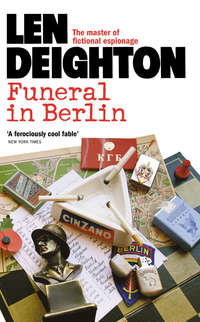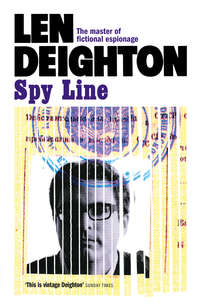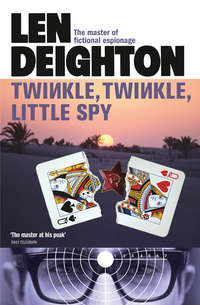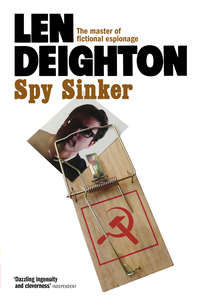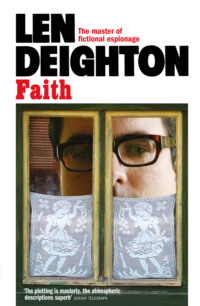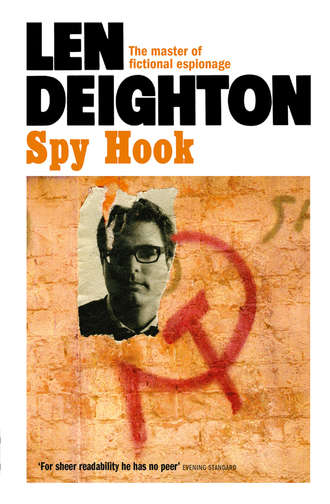
Полная версия
Spy Hook
‘I won’t come. You tell them that in London. They can try anything they like but I won’t come.’
He seemed agitated. ‘Okay, Jim,’ I said. ‘I’ll tell them.’
‘I’d love to see London again. I really miss the Smoke … We had some good times, didn’t we, Bernie?’
‘Yes, we did,’ I said. Jim had always been a bit of a cold fish: I was surprised by this revelation.
‘Remember when Fiona was frying the fish we caught and spilled the oil and set fire to the kitchen? You really flipped your lid.’
‘She said you did it.’
He smiled. He seemed genuinely amused. This was the Jim I used to know. ‘I never saw anyone move so fast. Fiona could handle just about anything that came along.’ He paused. ‘Until she met you. Yes, they were good times, Bernie.’
‘Yes, they were.’
I thought he was softening and he must have seen that in my face for he said, ‘But I’m not getting involved in any bloody inquiry. They are looking for someone to blame. You know that, don’t you?’
I said nothing. Jim said, ‘Why choose you to come and ask me …? Because if I don’t go, you’ll be the one they finger.’
I ignored that one. ‘Wouldn’t it be better to go over there and tell them what you know?’ I suggested.
My reply did nothing to calm him. ‘I don’t know anything,’ he said, raising his voice. ‘Jesus Christ, Bernie, how can you be so blind? The Department is determined to get even with you.’
‘Get even? For what?’
‘For what your wife did.’
‘That’s not logical.’
‘Revenge never is logical. Wise up. They’ll get you; one way or the other. Even resigning from the Department – the way I did – makes them mad. They see it as a betrayal. They expect everyone to stay in harness for ever.’
‘Like marriage,’ I said.
‘Till death do us part,’ said Jim. ‘Right. And they’ll get you. Through your wife. Or maybe through your father. You see.’
The car of the lift arrived and I stepped into it. I thought he was coming with me. Had I known he wasn’t I would never have let that reference to my father go unexplained. He put his foot inside and leaned round to press the button for the ground floor. By that time it was too late. ‘Don’t tip the driver,’ said Jim, still smiling as the doors closed on me. ‘It’s against company policy.’ The last I saw of him was that cold Cheshire Cat smile. It hung in my vision for a long time afterwards.
When I got outside in the street the snow was piling higher and higher, and the air was crammed full of huge snowflakes that came spinning down like sycamore seeds with engine failure.
‘Where’s your baggage?’ said the driver. Getting out of the car he tossed the remainder of his coffee into the snow where it left a brown ridged crater that steamed like Vesuvius. He wasn’t looking forward to a drive to the airport on a Friday afternoon, and you didn’t have to be a psychologist to see that in his face.
‘That’s all,’ I told him.
‘You travel light, mister.’ He opened the door for me and I settled down inside. The car was warm, I suppose he’d just come in from a job, expecting to be signed out and sent home. Now he was in a bad mood.
The traffic was slow even by Washington weekend standards. I thought about Jim while we crawled out to the airport. I suppose he wanted to get rid of me. There was no other reason why Jim would invent that ridiculous story about Bret Rensselaer. The idea of Bret being a party to any kind of financial swindle involving the government was so ludicrous that I didn’t even give it careful thought. Perhaps I should have done.
The plane was half-empty. After a day like that, a lot of people had had enough, without enduring the tender loving care of any airline company plus the prospect of a diversion to Manchester. But at least the half-empty First Class cabin gave me enough leg-room. I accepted the offer of a glass of champagne with such enthusiasm that the stewardess finally left the bottle with me.
I read the dinner menu and tried not to think about Jim Prettyman. I hadn’t pressed him hard enough. I’d resented the unexpected phone call from Morgan, the D-G’s personal assistant. I’d planned to spend this afternoon shopping. Christmas was past and there were sale signs everywhere. I’d glimpsed a big model helicopter that my son Billy would have gone crazy about. London was always ready to provide me with yet another task that was nothing to do with me or my immediate work. I had the suspicion that this time I’d been chosen not because I happened to be in Washington but because London knew that Jim was an old friend who’d respond more readily to me than to anyone else in the Department. When this afternoon Jim had proved recalcitrant I had rather enjoyed the idea of passing his rude message back to that stupid man Morgan. Now it was too late I was beginning to have second thoughts. Perhaps I should have taken up his offer to do it as a personal favour to me.
I thought about Jim’s warnings. He wasn’t the only one who thought the Department might still be blaming me for my wife’s defection. But the idea that they’d frame me for embezzlement was a new one. It would wipe me out, of course. No one would employ me if they made something like that stick. It was a nasty thought, and even worse was that throwaway line about getting to me through my father. How could they get to me through my father? My father didn’t work for the Department any more. My father was dead.
I drank more champagne – fizzy wine is not worth drinking if you allow the chill to go off it – and finished the bottle before closing my eyes for a moment in an effort to remember exactly what Jim had said. I must have dozed off. I was tired: really tired.
The next thing I knew the stewardess was shaking me roughly and saying, ‘Would you like breakfast, sir?’
‘I haven’t had dinner.’
‘They tell us not to wake passengers who are asleep.’
‘Breakfast?’
‘We’ll be landing at London Heathrow in about forty-five minutes.’
It was an airline breakfast: shrivelled bacon, a plastic egg with a small stale roll and UHT milk for the coffee. Even when starving hungry I found it very easy to resist. Oh well, the dinner I’d missed was probably no better, and at least the threatened diversion to sunny Manchester had been averted. I vividly remembered the last time I was forcibly flown to Manchester. The airline’s senior staff all went and hid in the toilets until the angry, unwashed, unfed passengers had been herded aboard the unheated train.
But soon I had my feet on the ground again in London. Waiting at the barrier there was my Gloria. She usually came to the airport to meet me, and there can be no greater love than that which brings someone on a voluntary visit to London Heathrow.
She looked radiant: tall, on tiptoe, waving madly. Her long naturally blonde hair and a tailored tan suede coat with its big fur collar made her shine like a beacon amongst the line of weary welcomers slumping – like drunks – across the rails in Terminal Three. And if she did flourish her Gucci handbag a bit too much and wear those big sunglasses even at breakfast time in winter, well, one had to make allowances for the fact that she was only half my age.
‘The car’s outside,’ she whispered as she released me from the tight embrace.
‘It will be towed away by now.’
‘Don’t be a misery. It will be there.’
And it was of course. And the weathermen’s threatened snow and ice had not materialized either. This part of England was bathed in bright early-morning sunshine and the sky was blue and almost completely clear. But it was damned cold. The weathermen said it was the coldest January since 1940, but who believes the weathermen?
‘You won’t know the house,’ she boasted as she roared down the motorway in the yellow dented Mini, ignoring the speed limit, cutting in front of angry cabbies and hooting at sleepy bus drivers.
‘You can’t have done much in a week.’
‘Ha, ha! Wait and see.’
‘Better you tell me now,’ I said with ill-concealed anxiety. ‘You haven’t knocked down the garden wall? Next door’s rose beds …’
‘Wait and see: wait and see!’
She let go of the wheel to pound a fist against my leg as if making sure I was really and truly flesh and blood. Did she realize what mixed feelings I had about moving out of the house in Marylebone? Not just because Marylebone was convenient and central but also because it was the first house I’d ever bought, albeit with the aid of a still outstanding mortgage that the bank only agreed to because of the intervention of my prosperous father-in-law. Well, Duke Street wasn’t lost for ever. It was leased to four American bachelors with jobs in the City. Bankers. They were paying a handsome rent that not only covered the mortgage but gave me a house in the suburbs and some small change to face the expenses of looking after two motherless children.
Gloria was in her element since moving in to the new place. She didn’t see it as a rather shabby semi-detached suburban house with its peeling stucco and truncated front garden and a side entrance that had been overlaid with concrete to make a place to park a car. For Gloria this was her chance to make me see how indispensable she was. It was her chance to get us away from the shadow of my wife Fiona. Number thirteen Balaklava Road was going to be our little nest, the place into which we settled down to live happily ever after, the way they do in the fairy stories that she was reading not so very long ago.
Don’t get me wrong. I loved her. Desperately. When I was away I counted the days – even the hours sometimes – before we’d be together again. But that didn’t mean that I couldn’t see how ill-suited we were. She was just a child. Before me her boy-friends had been schoolkids: boys who helped with logarithms and irregular verbs. Sometime she was going to suddenly realize that there was a big wide world out there waiting for her. By that time perhaps I’d be depending on her. No perhaps about it. I was depending on her now.
‘Did it all go all right?’
‘All all right,’ I said.
‘Someone from Central Funding left a note on your desk … Half a dozen notes in fact. Something about Prettyman. It’s a funny name, isn’t it?’
‘Nothing else?’
‘No. It’s all been very quiet in the office. Unusually quiet. Who is Prettyman?’ she asked.
‘A friend of mine. They want him to give evidence … some money they’ve lost.’
‘And he stole it?’ She was interested now.
‘Jim? No. When Jim puts his hand in the till he’ll come up with ten million or more.’
‘I thought he was a friend of yours,’ she said reproachfully.
‘Only kidding.’
‘So who did steal it?’
‘No one stole anything. It’s just the accountants getting their paperwork into the usual chaos.’
‘Truly?’
‘You know how long the cashier’s office takes to clear expenses. Did you see all those queries they raised on last month’s chit?’
‘That’s just your expenses, darling. Some people get them signed and paid within a week.’ I smiled. I was glad to change the subject. Prettyman’s warnings had left a dull feeling of fear in me. It was heavy in my guts, like indigestion.
We arrived at Balaklava Road in record time. It was a street of small Victorian houses with large bay windows. Here and there the fronts were picked out in tasteful pastel colours. It was Saturday: despite the early hour housewives were staggering home under the weight of frantic shopping, and husbands were cleaning their cars: everyone demonstrating that manic energy and determination that the British only devote to their hobbies.
The neighbour who shared our semi-detached house – an insurance salesman and passionate gardener – was planting his Christmas tree in the hard frozen soil of his front garden. He could have saved himself the trouble, they never grow: people say the dealers scald the roots. He waved with the garden trowel as we swept past him and into the narrow side entrance. It was a squeeze to get out.
Gloria opened the newly painted front door with a proud flourish. The hall had been repapered – large mustard-yellow flowers on curlicue stalks – and new hall carpet too. I admired the result. In the kitchen there were some primroses on the table which was set with our best chinaware. Cut-glass tumblers stood ready for orange juice, and rashers of smoked bacon were arranged by the stove alongside four brown eggs and a new Teflon frying pan.
I walked round the whole house with her and played my appointed role. The new curtains were wonderful; and if the brown leather three-piece was a bit low and so difficult to climb out of, with a remote control for the TV, what did it matter? But by the time we were back in the kitchen, a smell of good coffee in the air, and my breakfast spluttering in the pan, I knew she had something else to tell me. I decided it wasn’t anything concerning the house. I decided it was probably nothing important. But I was wrong about that.
‘I’ve given in my notice,’ she said over her shoulder while standing at the stove. She’d threatened to leave the Department not once but several hundred times. Always until now she’d made me the sole focus of her anger and frustration. ‘They promised to let me go to Cambridge. They promised!’ She was getting angry at the thought of it. She looked up from the frying pan and waved the fork at me before again jabbing at the bacon.
‘And now they won’t? They said that?’
‘I’ll pay my own way. I have enough if I go carefully,’ she said. ‘I’ll be twenty-three in June. Already I’ll feel like an old lady, sitting with all those eighteen-year-old schoolkids.’
‘What did they say?’
‘Morgan stopped me in the corridor last week. Asked me how I was getting along. What about my place at Cambridge? I said. He didn’t have the guts to tell me in the proper way. He said there was no money. Bastard! There’s enough money for Morgan to go to conferences in Australia and that damned symposium in Toronto. Money enough for jaunts!’
I nodded. I can’t say that Australia or Toronto were high on my list of places to jaunt in, but perhaps Morgan had his reasons. ‘You didn’t tell him that?’
‘I damned well did. I let him have it. We were outside the Deputy’s office. He must have heard every word. I hope he did.’
‘You’re a harridan,’ I told her.
She slammed the plates on the table with a snarl and then, unable to keep up the display of fierce bad temper, she laughed. ‘Yes, I am. You haven’t seen that side of me yet.’
‘What an extraordinary thing to say, my love.’
‘You treat me like a backward child, Bernard. I’m not a fool.’ I said nothing. The toast flung itself out of the machine with a loud clatter. She rescued both slices before they slid into the sink and put them on a plate alongside my eggs and bacon. Then, as I began to eat, she sat opposite me, her face cupped in her hands, elbows on the table, studying me as if I were an animal in the zoo. I was getting used to it now but it still made me uneasy. She watched me with a curiosity that was disconcerting. Sometimes I would look up from a book or finish talking on the phone to find her studying me with that same expression.
‘When did you say the children would be home?’ I asked.
‘You didn’t mind them going to the sale of work?’
‘I don’t know what a sale of work is,’ I said, not without an element of truth.
‘It’s at the Church Hall in Sebastopol Road. People make cakes and pickles and knit tea cosies and donate unwanted Christmas presents. It’s for Oxfam.’
‘And why would Billy and Sally want to go?’
‘I knew you’d be angry.’
‘I’m not angry but why would they want to go?’
‘There’ll be toys and books and things too. It’s a jumble sale really but the Women’s Guild prefers to call it their New Year Sale of Work. It sounds better. I knew you wouldn’t bring any presents back with you.’
‘I tried. I wanted to, I really did.’
‘I know, darling. That wasn’t why the children wanted to be here when you arrived. I told them to go. It’s good for them to be with other children. Changing schools isn’t easy at that age. They left a lot of friends in London; they must make new ones round here. It’s not easy, Bernie.’ It was quite a speech; perhaps she’d had it all prepared.
‘I know.’ I was still examining the awful prospect of her taking a place at the university next October, or whenever it was the academic year started in such places. What was I going to do with this wretched house, far away from everyone I knew? And what about the children?
She must have seen my face. ‘I’ll be back every weekend,’ she promised.
‘You know that’s impossible,’ I told her. ‘You’ll be working damned hard. I know you; you’ll want to do everything better than anyone’s ever done it before.’
‘It will be all right, darling,’ she said. ‘If we want it to be all right, it will be. You’ll see.’
Muffin, our battered cat, came and tapped on the window. Muffin seemed to be the only member of the family who’d settled in to Balaklava Road without difficulties. And even Muffin stayed out all night sometimes.
2
There was another thing I didn’t like about the suburbs: getting to work. I braved the morning traffic jams in my ageing Volvo but Gloria seldom came with me in the car. She enjoyed going on the train, at least she said she enjoyed it. She said it gave her time to think. But the 7.32 was always packed with people from even more outlying suburbs by the time it arrived. And I hated to stand all the way to Waterloo. Secondly there was the question of my assigned parking place. Already the hyenas were circling. The old man who ran Personnel Records had started hinting about a cash offer for it as soon as I registered my new address. You’ll come in on the train now I suppose? No, I said sharply. No I won’t. And apart from a couple of days when the old Volvo was having its transmission fixed, I hadn’t. I calculated that five consecutive days in a row would be all I’d need to find my hard-won parking space reassigned to someone who’d make better use of it.
So on Monday I went by car and Gloria went by train. She arrived ahead of me, of course. The office is only two or three minutes’ walk from Waterloo Station, while I had to drag through the traffic jams in Wimbledon.
I got into the office to find alarm and despondency spread right through the building. Dicky Cruyer was there already, a sure sign of a crisis. They must have phoned him at home and had him depart hurriedly from the leisurely breakfast he enjoys after jogging across Hampstead Heath. Even Sir Percy Babcock, the Deputy D-G, had dragged himself away from his law practice and found time to spare for an early morning session.
‘Number Two Conference Room,’ the girl waiting in the corridor said. She whispered in a way that revealed her pent-up excitement: as if this was the sort of day she’d been waiting for ever since beginning to type all those tedious reports for us. I suppose Dicky must have sent her to stand sentry outside my office. ‘Sir Percy is chairing the meeting. They said you should join them as soon as you arrived.’
‘Thanks, Mabel,’ I said and gave her my coat and a leather case of very unimportant non-classified paperwork that I hoped she’d mislay. She smiled dutifully. Her name wasn’t Mabel but I called them all Mabel and I suppose they’d got used to it.
Number Two was on the top floor, a narrow room that seated fourteen at a pinch and had a view right across to where the City’s ugly tower blocks underpinned the low grey cloud base.
‘Samson! Good,’ said the Deputy D-G when I went in. There was a notepad, a yellow pencil and a chair waiting for me and two more pristine pads and pencils that may or may not have been waiting for others who were arriving at work hoping their lateness would not be noticed. Bad luck.
‘Have you heard?’ Dicky asked.
I could see it was Dicky’s baby. This was a German Desk crisis. It wasn’t a routine briefing for the Deputy, or a conference to decide about annual leave rosters, or more questions about where Central Funding might have put the odd few hundred thousand pounds that Jim Prettyman authorized for Bret Rensselaer and Bret Rensselaer never got. This was serious. ‘No,’ I said. ‘What’s happened?’
‘Bizet,’ said Dicky, and went back to chewing his fingernail.
I knew the group; at least I knew them as well as a deskman sitting in London can know the people who do the real nasty dangerous work. Somewhere near Frankfurt an der Oder, right over there on East Germany’s border with Poland. ‘Poles,’ I said, ‘or that’s how it started. Poles working in some sort of heavy industry.’
‘That’s right,’ said Dicky judiciously. He had a folder and was looking at it to check how well my memory was working.
‘What’s happened?’
‘It looks nasty,’ said Dicky, unvanquished master of the nebulous answer on almost any subject except the gastronomic merits of expensive restaurants.
Billingsly, a bald-headed youngster from the Data Centre, tapped the palm of his hand with his heavy horn-rimmed spectacles and said, ‘We seem to have lost more than one of them. That’s always a bad sign.’
So even in the Data Centre they knew that. Things were looking up. ‘Yes,’ I said. ‘That’s always a bad sign.’
Billingsly looked at me as if I’d slapped his face. Uncordial now, he said, ‘If you know anything else we can do …’
‘Have you put out a contact string?’ I asked.
Billingsly seemed to be unsure what a contact string – a roll-call for survivors – was. But eventually Harry Strang, an elderly gorilla from Operations, stopped scratching his cheek with the eraser end of his brand-new yellow pencil for enough time to answer me. ‘Early yesterday morning.’
‘It’s too soon.’
‘That’s what I told the Deputy,’ said Dicky Cruyer, nodding deferentially to Sir Percy. Dicky was looking more tired and ill every minute. He usually came down with something totally incapacitating in this sort of situation. It was the thought of making a decision, and signing it for all to see, that affected him.
‘Mass,’ said Harry Strang.
‘They see each other at Sunday morning Mass,’ explained Dicky Cruyer.
‘No out-of-contact signals?’ I asked.
‘No,’ said Strang. ‘That’s what makes it worrying.’
‘Damn right,’ I said. ‘What else?’
There was a moment’s silence. If I’d been paranoid I could easily have suspected that they wanted to keep me ignorant of the confirmation.
‘Odds and ends,’ said Billingsly.
Strang said, ‘We have something from inside. Two men picked up for interrogation in the Frankfurt area.’
‘Berlin.’
‘Berlin? No Frankfurt,’ said Billingsly.
I’d had enough of Billingsly by that time. They were all like him in the Data Centre: they thought we all needed a couple of megabytes of random access memory to get level with them.
‘Don’t act the bloody fool,’ I told Strang. ‘Is your information from Berlin or from Frankfurt?’
‘Berlin,’ said Strang. ‘Normannenstrasse.’ That was the big grey stone block in Berlin-Lichtenberg from which East Germany’s Stasi – State Security Service – intimidated their world and poked their fingers into ours.
‘Over a weekend,’ I said. ‘Doesn’t sound good. If Frankfurt Stasi put that on the teleprinter they must think they have something worthwhile.’
‘The question we’re discussing,’ said the Deputy with the gentle courtesy that barristers show when leading a nervous defendant into an irreversible admission of guilt, ‘is whether to follow up.’ He looked at me and tilted his head to one side as if seeing me better like that.
I stared back at him. He was a funny bright-eyed plump little man with a shiny pink face and hair brushed close against his skull. Black jacket, a waistcoat full of ancient pens and pencils, pinstripe trousers and the tie of some obscure public school held in place by a jewelled pin. A lawyer. If you saw him on the street you’d have thought him a down-at-heel solicitor or a barrister’s clerk. In real life – which is to say outside this building – he ran one of the most successful law firms in London. Why he persevered with this unrewarding job I couldn’t fathom, but he was only one step away from running the whole Department. The D-G was, after all, on his last legs. I said, ‘You mean, should you put someone in to follow up?’


